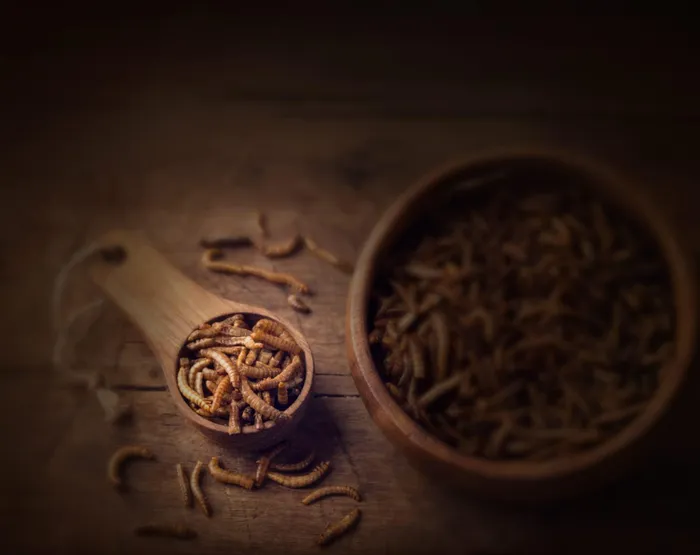The future of food: Can eating insects solve global food insecurity?

A team of researchers at the University of Pretoria’s Department of Zoology and Entomology is exploring how edible insects could help food harvesting.
Image: Supplied
Could the future of food be crawling right under our feet?
You read that right. What once triggered an “ew, no way” reaction may soon be the answer to global food insecurity and environmental sustainability.
A team of researchers at the University of Pretoria’s (UP) Department of Zoology and Entomology is looking into how edible insects could help solve some of the planet’s most urgent challenges.
They aim to make insect farming cheaper, more accessible, and scalable. This is especially important for Africa’s rural communities.
Professor Abdullahi Ahmed Yusuf, a Humboldt Ambassador Scientist in South Africa, stated that the research focuses on cost-effective rearing techniques, sustainable harvesting methods, safe handling practices, nutritional benefits, and the legislative framework necessary to support insect-based food systems.
“We use two commonly farmed edible insects: the household cricket and the yellow mealworm,” says Prof Yusuf. “The yellow mealworm, long used in animal feed, was recently approved for human consumption by the European Union.”
So why edible insects? Why not just embrace a plant-based lifestyle or something?
Insects are easy to farm, reproduce quickly, and require less land and water than traditional livestock. However, the challenge lies in finding affordable rearing substrates—especially for small-scale farmers.
“Wheat bran, the typical feed for mealworms, is expensive and often hard to come by in low-income areas,” explained Yusuf. “We tested six alternatives—wheat flour, maize flour, Lucerne pellets, dog food, soya flour, and oats—and found that wheat and maize flour were the most cost-effective substitutes.”
The same flour could successfully raise two consecutive generations of mealworms, without a drop in nutritional quality. The insects remained rich in protein, essential minerals like zinc and magnesium, and saturated fatty acids important for energy and hormone production.
“In Africa, insects are mostly collected from the wild for home use or informal markets,” Yusuf notes. “But our research shows that they can be farmed cheaply and efficiently, which could transform food security and livelihoods.”
The edible insect industry is expected to be worth $8 billion globally by 2030. Projections suggest it could replace 60 million tons of conventional feed, recycle 200 million tons of crop waste, produce 60 million tons of organic fertiliser, and create up to 15 million jobs.
Beyond their nutritional value, insect farming offers significant environmental benefits: reduced greenhouse gas emissions, minimal land use, and efficient conversion of organic waste into valuable protein.
Often dubbed a “superfood,” edible insects boast protein and micronutrient levels comparable—or superior—to conventional foods. With demand rising for alternative protein sources due to population growth and climate change, edible insects are fast gaining attention beyond their traditional use in some African communities.
According to Food and Agriculture Organization (FAO), edible insects contain high-quality protein, vitamins and amino acids for humans.
"Insects have a high food conversion rate, e.g. crickets need six times less feed than cattle, four times less than sheep, and twice less than pigs and broiler chickens to produce the same amount of protein. Besides, they emit less greenhouse gases and ammonia than conventional livestock. Insects can be grown on organic waste. Therefore, insects are a potential source for conventional production (mini-livestock) of protein, either for direct human consumption, or indirectly in recomposed foods (with extracted protein from insects); and as a protein source into feedstock mixtures," said FAO.
A report by the World Economic Forum, the concept of insect farming is not new. Approximately 1-1.2 trillion insects are raised on farms annually for food and animal feed.
“Insects could be a game-changer for Africa,” says Yusuf. “They’re a low-cost, high-impact solution to malnutrition, food insecurity, and unsustainable agricultural practices.”
So, while the idea of munching on a mealworm burger may still take some getting used to, the science suggests that eating insects could be one of the smartest—and greenest—moves we can make.
IOL
Related Topics: